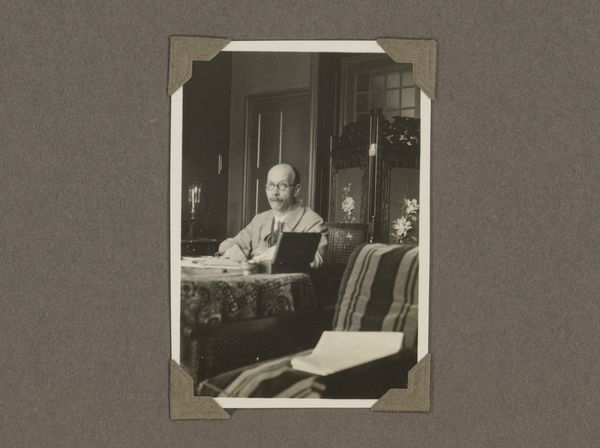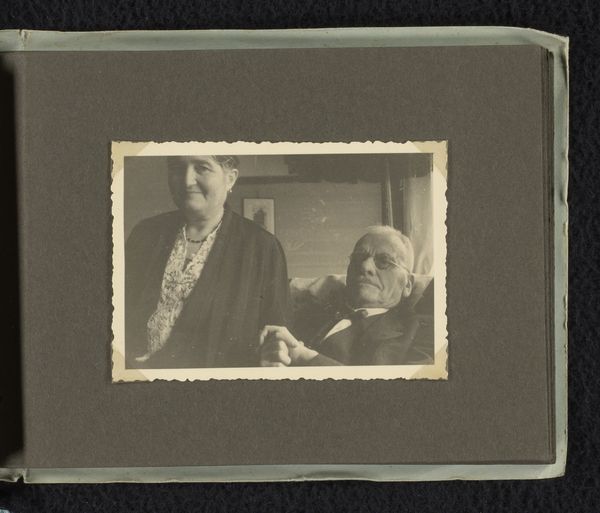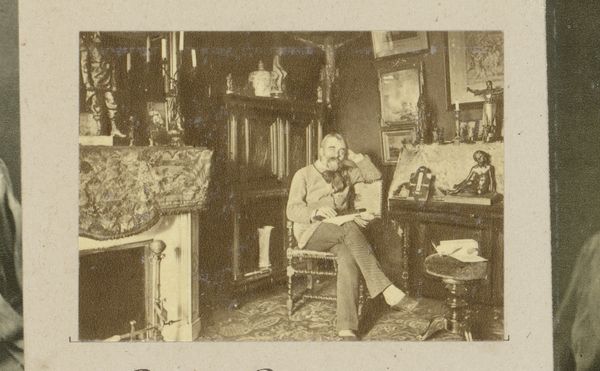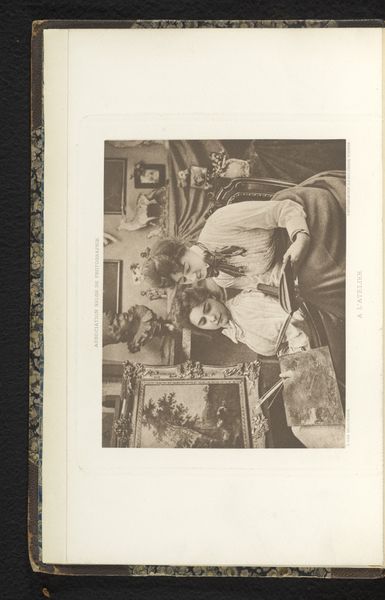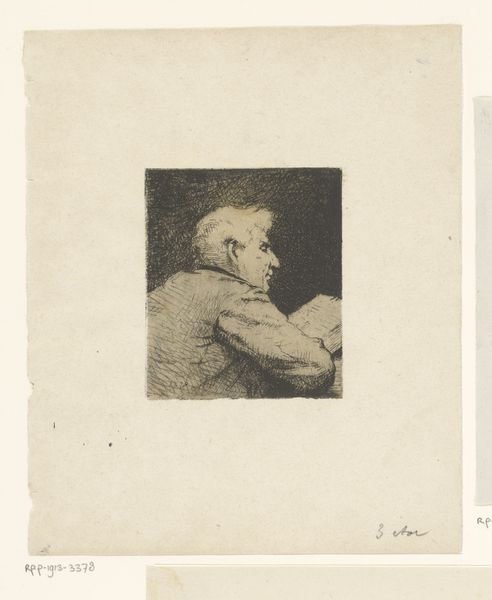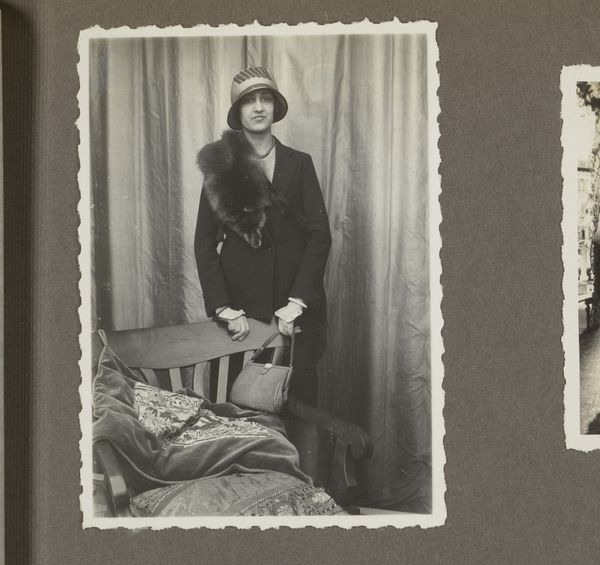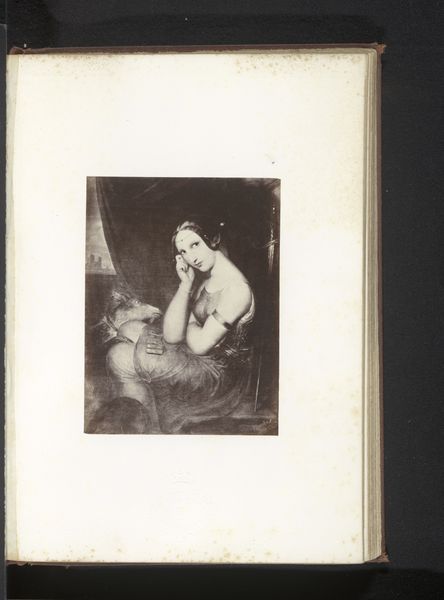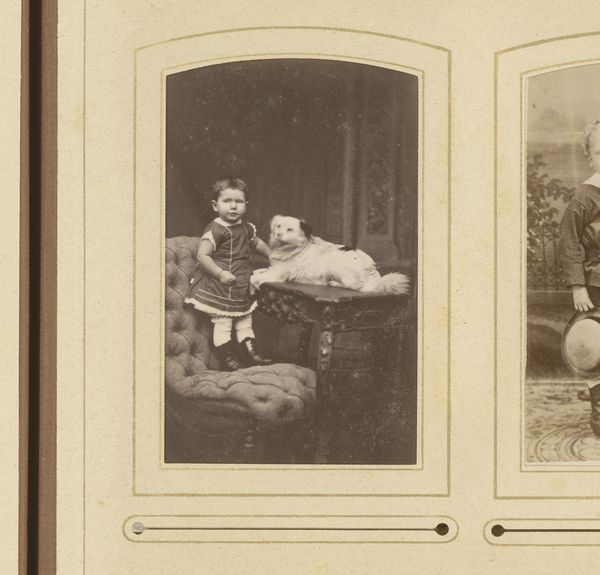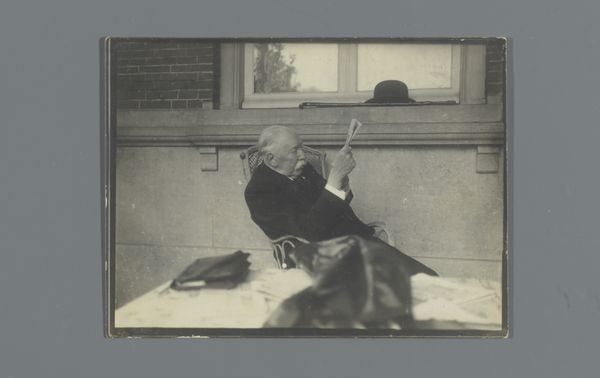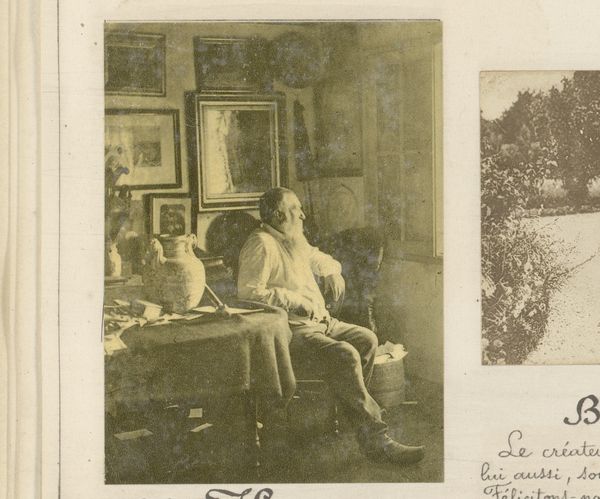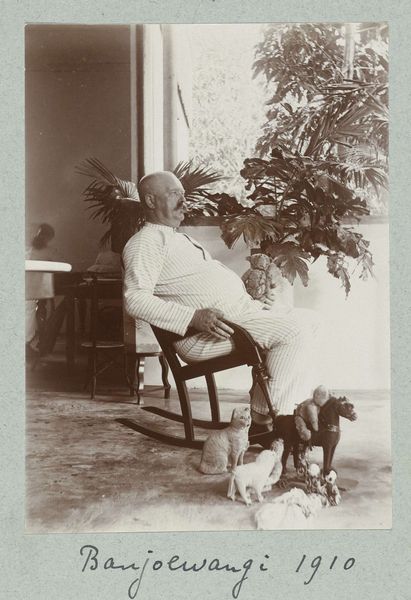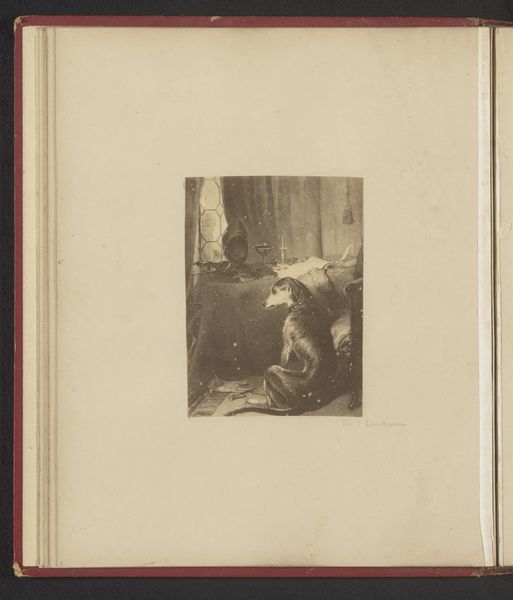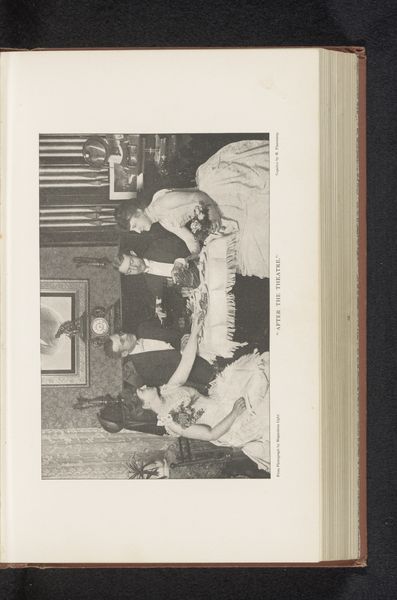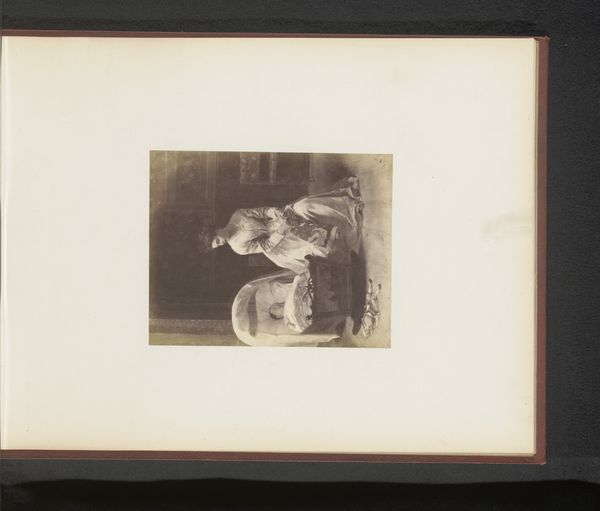
#
pencil drawn
#
aged paper
#
toned paper
#
light pencil work
#
pencil sketch
#
personal sketchbook
#
portrait reference
#
pencil drawing
#
portrait drawing
#
pencil work
Dimensions: height 92 mm, width 65 mm
Copyright: Rijks Museum: Open Domain
Curator: This captivating artwork, created circa 1900, is titled "Portret van Georges Courteline". Editor: There's something so intimate about this portrait. He looks rather dignified, and at ease, enveloped by the folds of his robe, almost blending with his pet. Curator: Precisely. Note how the artist employs a muted palette, primarily working with a spectrum of earth tones. This conscious choice directs our focus toward the texture, and intricate patterns within the drawing. The texture of the aged paper, also helps enhance this feeling. Editor: Beyond the purely visual, I am drawn to this man’s expression – almost an intellectual detachment mixed with comfort. Knowing that Courteline was a celebrated dramatist known for his satire makes you wonder if this domestic scene challenges our expectations. What narratives or subversions are at play, or even gently mocked here? Curator: Your point brings a compelling layer to this work. Analyzing the formal elements, the lines are deliberately soft. The subtle tonal variations creating volume primarily across his face, contrasted with the almost illustrative patterns, creates a hierarchy in our observation. The face demands more attention than the patterned jacket and pet, creating emphasis within the composition itself. Editor: Absolutely. But how much is he conforming to, or pushing back against, established codes of masculinity at the turn of the century? Is he challenging notions of bourgeois male identity by appearing, instead, almost approachable and relaxed? He even allows himself to be seen holding a dog. That is a statement in itself. Curator: An excellent reading, focusing attention back to societal context. While I recognize the sociopolitical layers inherent in the subject’s pose, and its potential reception, for me the effectiveness resides more fully in the visual dialogue—between light and shadow. Its success lives most potently in its technical simplicity—it invites contemplation upon fundamental questions of composition, line and tonal gradation. Editor: And I would suggest its continuing impact comes from the social questions that resonate with viewers now—forcing a historical and intersectional dialogue that transcends simply admiring this as a quaint historical image. Curator: An appropriately holistic assessment. Thank you for sharing this contextual understanding. Editor: My pleasure. It's been quite illuminating to consider these historical forces in this light.
Comments
No comments
Be the first to comment and join the conversation on the ultimate creative platform.
